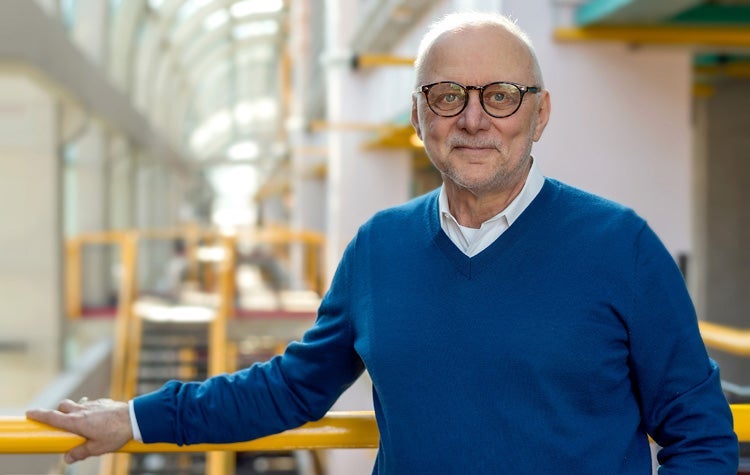M. Tamer Özsu, a professor in the David R. Cheriton School of Computer Science and a founding member of its Data Systems group, has studied database systems for decades. In fact, his fascination with computer systems that allow users to organize, extract and analyze data began before formal database systems existed.
“My interest goes back to 1976, when I was a part-time graduate student in industrial engineering while working at the Turkish postal administration to develop a searchable directory,” Özsu recounted. “We were struggling to figure out how this could be done, what data structures to use, and how to lay it out so users could submit queries in multiple ways.”

Around that time, Özsu was taking a graduate course that introduced the topic of databases. “We had a visiting professor from the US who was teaching a course when a lightbulb suddenly lit up. I thought, ‘Ah, this is the way to solve the problem!’ and I was hooked on database systems ever since.”
Of course, much has happened in this research area since those early days when the contents of a database were measured in mere kilobytes.
Today, more than 2.5 exabytes of data are created every day. And this mind-boggling tsunami of information — 2,500,000,000,000,000,000 new bytes of it daily — comes from an almost equally bewildering variety of sources, from archives of old scanned documents, financial transactions and online articles, to more recent sources such as posts, pictures and videos uploaded to social media sites. Even Siri requests on smart phones and the growing popularity of the Internet of Things contribute to this ever-growing deluge of data.
Özsu’s current work focuses on distributed and parallel data management and applying database technology to non-traditional data types, particularly what’s known as graph data. Graph representations are used to capture the structure of extremely large data sets.
“Graphs have always been important data types for database researchers, but with the exponential growth of social networks such as Facebook and Twitter, interest in managing very large graphs has gained much momentum,” he said. “By taking information and presenting it as a graph, all kinds of insights can be extracted. For example, how do you find friends of friends of your friends on Facebook? This task is an example of a graph query, in which each node or intersection represents someone’s mutual friend and each connection represents the relationship.”
Work recognized by American Association for the Advancement of Science
Özsu was recognized on November 20, 2017 for his work by the American Association for the Advancement of Science, which named him a Fellow of AAAS for his principled contributions to database systems research, education and service.
“We are entering a new age of data management,” Özsu said. “The advancements we’re seeing today are similar to the leaps we saw in the 1970s and 1980s, when traditional relational databases were being created, implemented and expanded. What’s different today is the unprecedented volume, variety and velocity of data being created. Some data is structured, some unstructured and much of it is heterogeneous and often dirty, but once the data is no longer siloed, it can be analyzed to reveal many insights.”
Özsu is Waterloo’s fourth professor to be named an AAAS Fellow. Previous AAAS Fellows are Heather Douglas, Waterloo chair in science and society, Arthur Carty, former executive director of the Waterloo Institute for Nanotechnology, and Raymond Laflamme, executive director of the Institute for Quantum Computing.
“Congratulations to Tamer for being named a Fellow of the American Association for the Advancement of Science,” said Mark Giesbrecht, Director of the David R. Cheriton School of Computer Science. “He joins an accomplished group of colleagues globally whose scientific achievements have been recognized by the world’s largest general science society.”
This year, AAAS has awarded the prestigious distinction of Fellow to 396 of its members for their efforts toward advancing science applications that are deemed scientifically or socially distinguished. New Fellows will be presented with a certificate and a gold or blue pin — representing science or engineering, respectively — on Saturday, February 17, 2018 at the AAAS Fellows Forum during the 2018 AAAS Annual Meeting in Austin, Texas.
They will be announced formally in the AAAS News & Notes section of the journal Science on November 24, 2017.